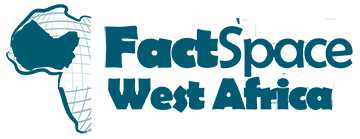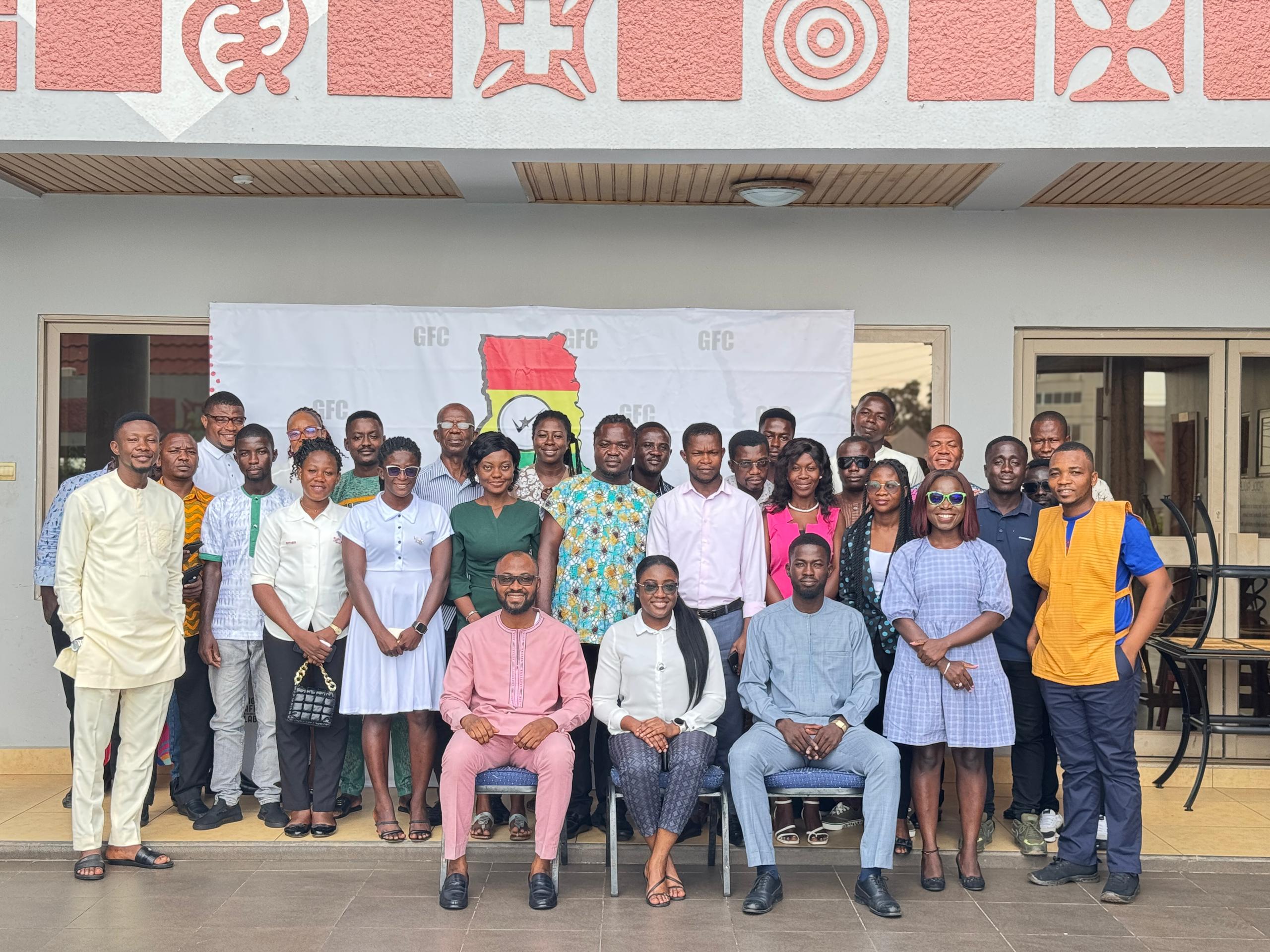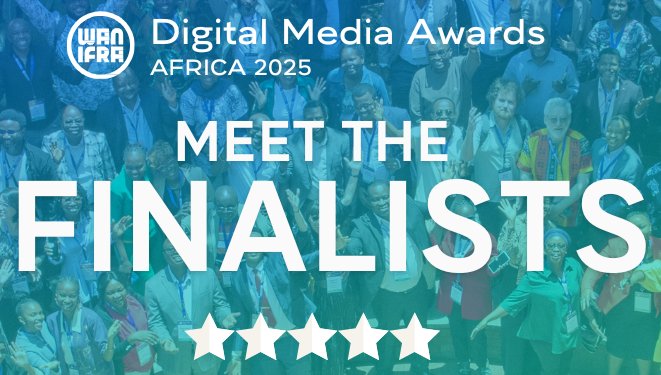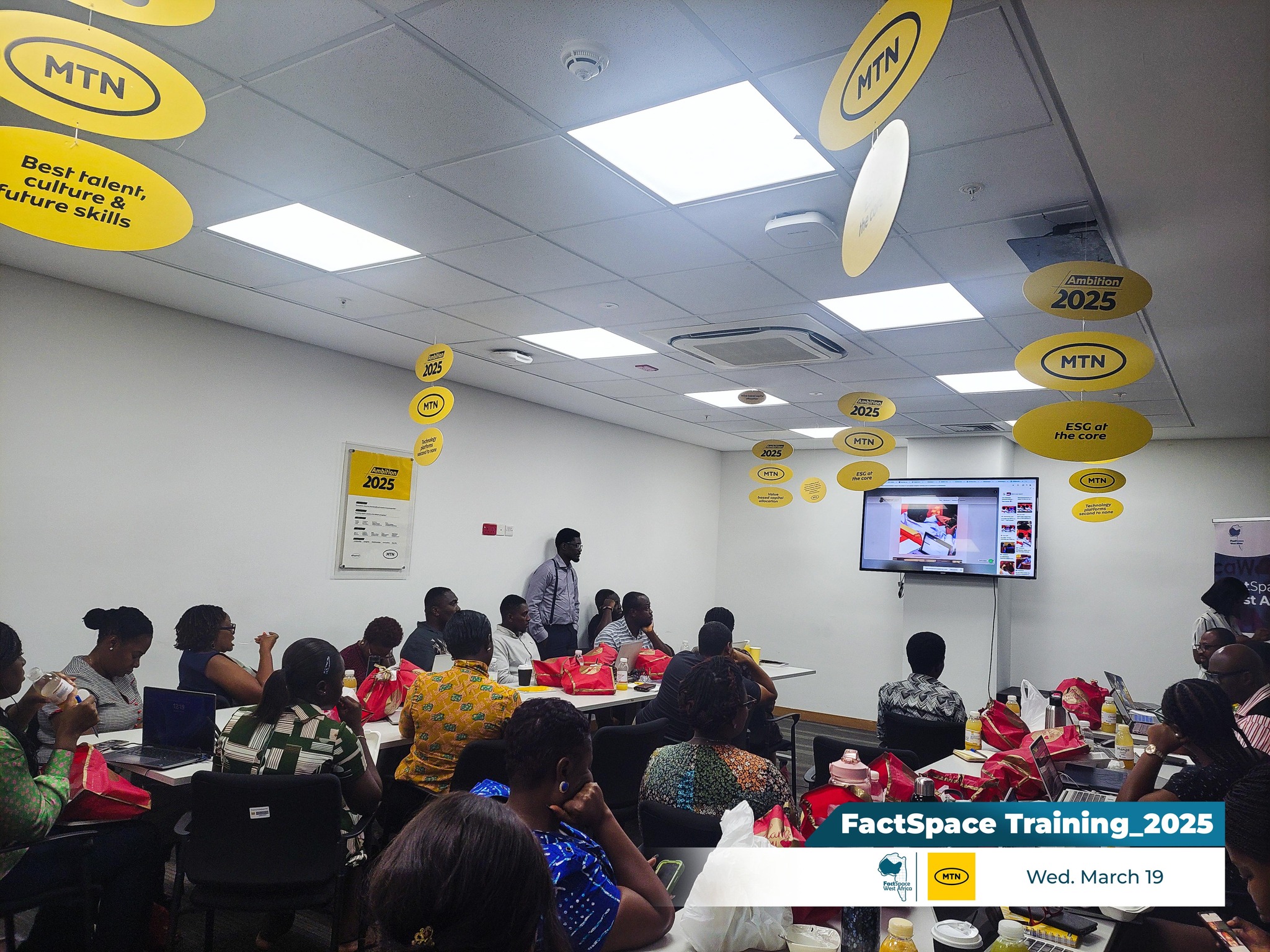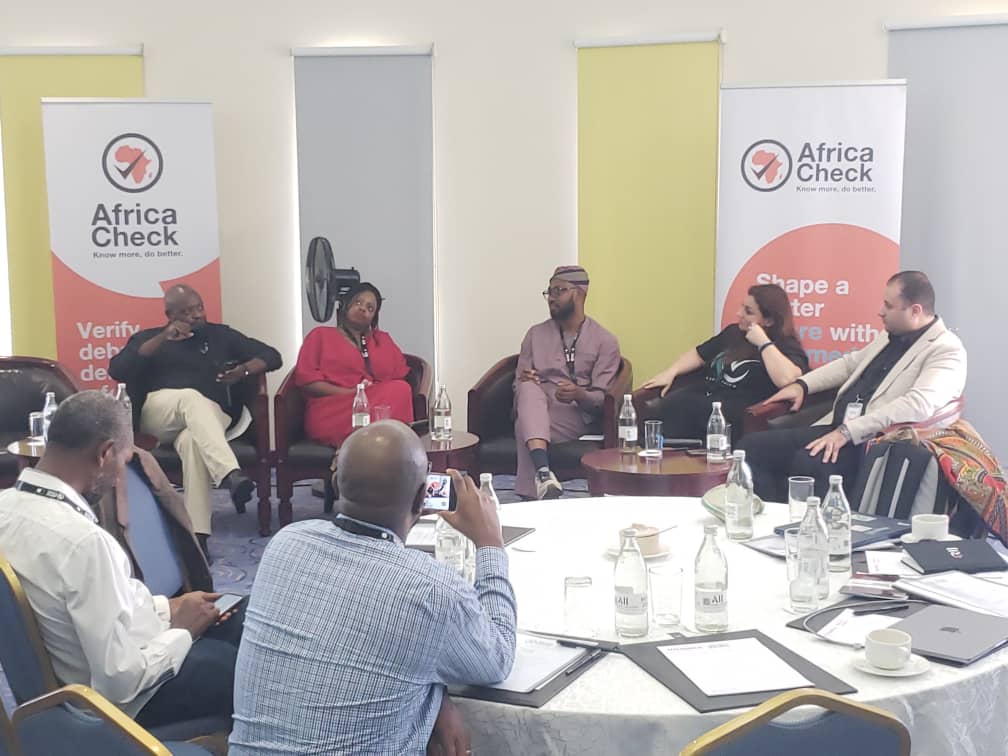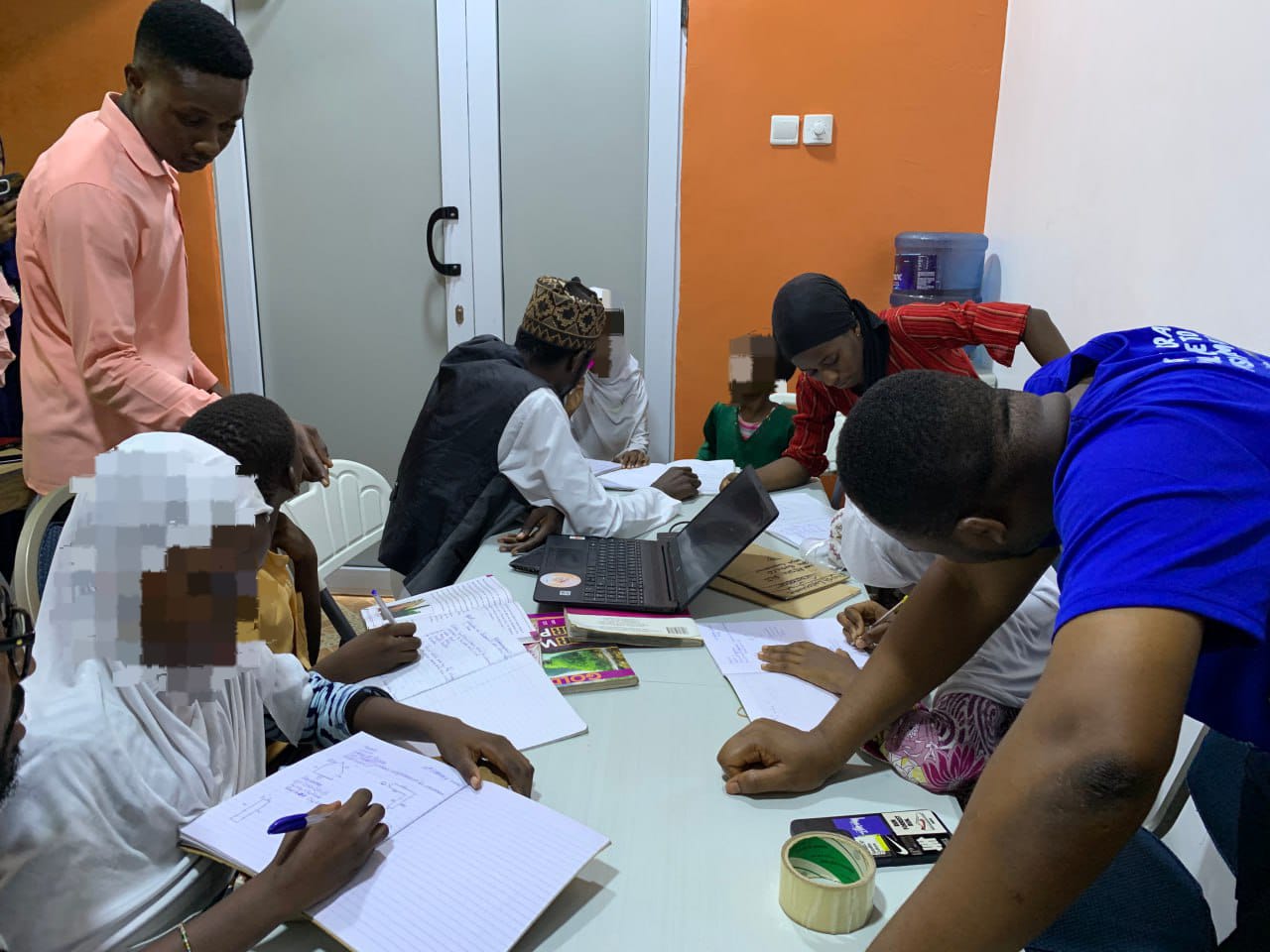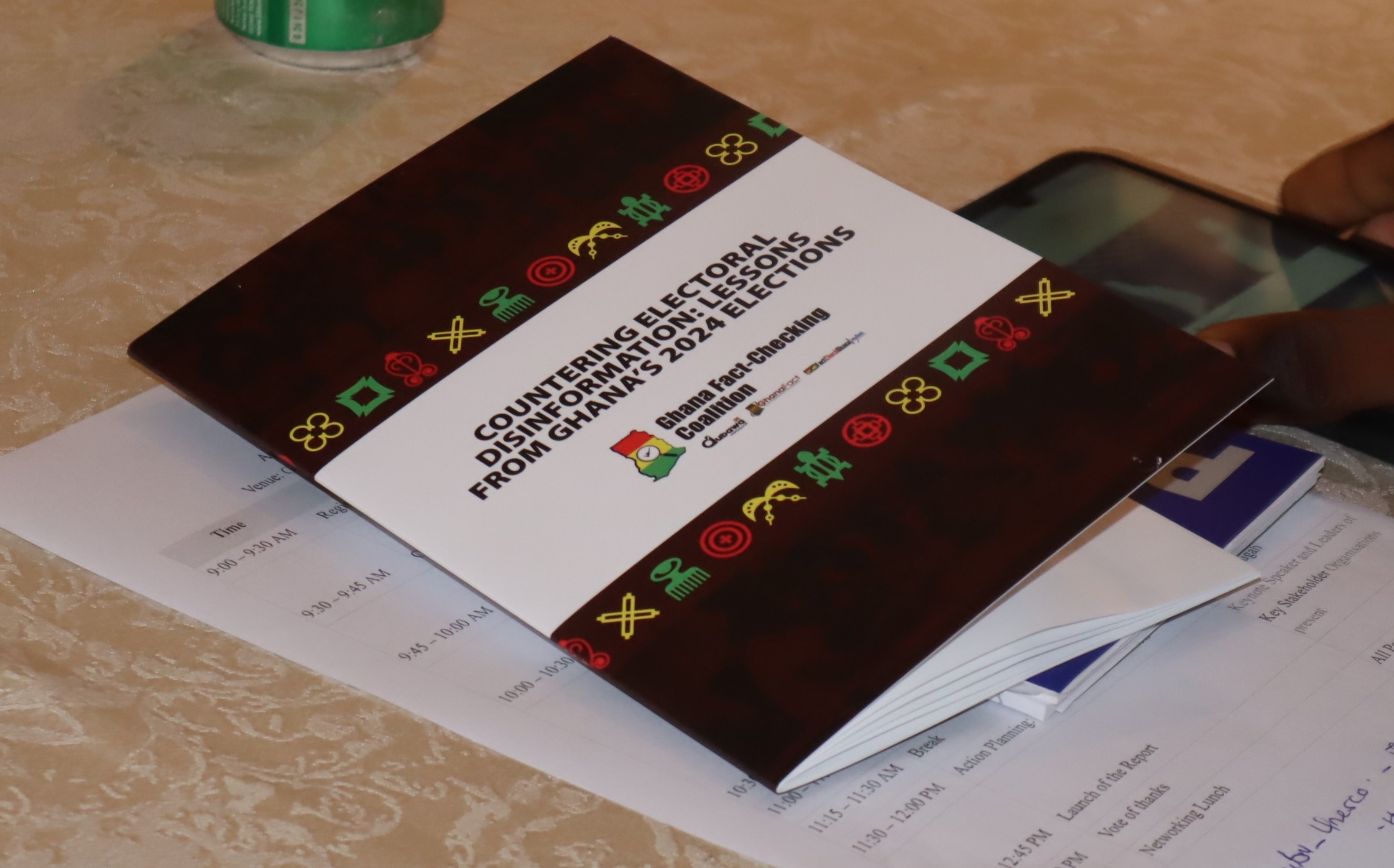Kumasi, 28 November, FSWA – FactSpace West Africa has trained some selected journalists in the middle belt of Ghana on ensuring ethical and factual reporting ahead of the 2024 elections.
The journalists were pooled from the Ashanti, Ahafo, Bono, Bono East, and Western North regions. They were trained on cybersecurity threats and tactics in the lead-up to, during and even beyond the elections.
The training was sponsored by Google News Initiative, Africa Check, Fojo Media Institute and the Ghana Centre for Democratic Development (CDD-Ghana). It forms part of the Ghana Fact-Checking Coalition’s (GFC) activities targeted at ensuring information integrity and combating misinformation during the by the electioneering process.
Sharon Willis Brown-Acquah, the Programs Officer at CDD-Ghana, urged participants to invest efforts in gathering the necessary tools and skills to effectively combat misinformation and disinformation that may be associated with the upcoming elections.
Sharon noted that the media needed to gain such verification skills to better inform the public with accuracy rather than speed.
The Executive Director of FactSpace West Africa, Rabiu Alhassan, shared highlights of a report produced by GhanaFact that mapped social media conversations inflaming the Bawku conflict in the Upper East Region of Ghana.
He illustrated how social media is now playing a key role in how information is consumed, as many people including professional personnel rely heavily on up-to-the-minute updates from citizens on social media platforms. Rabiu noted that social media has become a channel for misinformation and disinformation and hence it is crucial for professional journalists to up their game to avoid being kicked out.
“We’ve gotten to a stage where news is no longer broken on mainstream media. News now breaks on social media: X, Facebook, Instagram and others instead of radio and TV. Social media is playing a major role in terms of where we get our information or news. So you need to be skilled enough to verify online content before publishing on your mainstream platforms so as not to spread false information,” Rabiu said.
He used verification tools that could help in fact-checking the sources of information and information shared, tools for analysing what is shared and doing deep analysis of whatever is shared online. Some of the tools the journalists were exposed to included Google Reverse Image Search, TinEye, InVID video verification tool, Wayback Machine, and WhoIs.
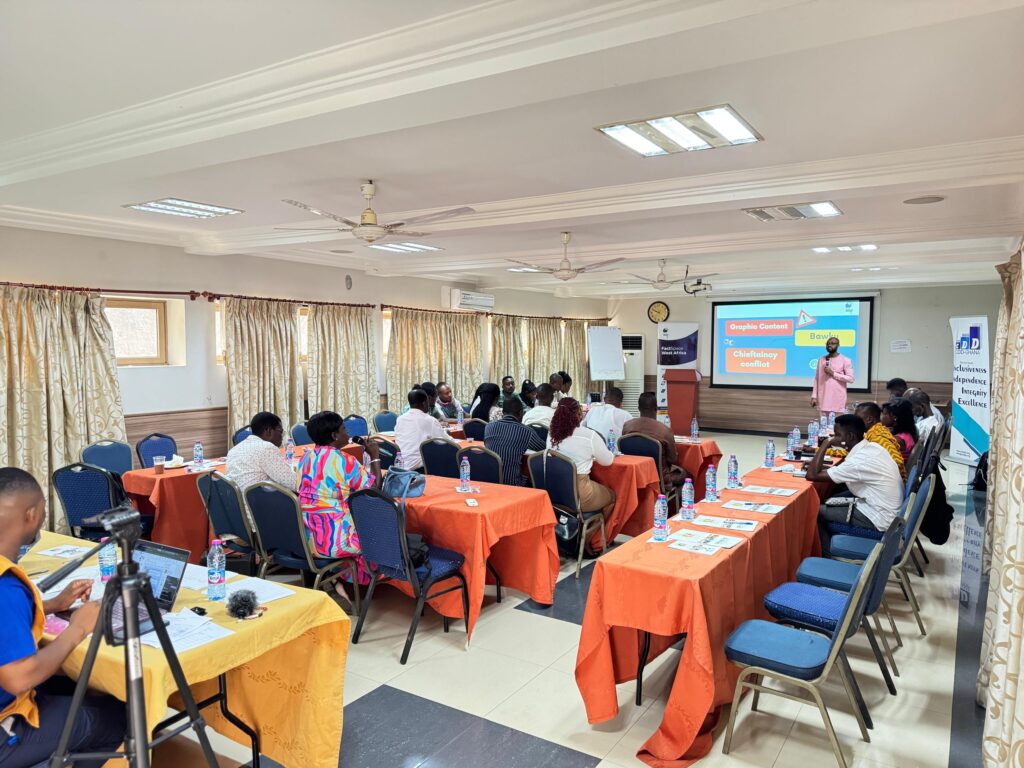
Kwaku Sarpong Manu, the Manager for the Computer Emergency Response Team at the Cyber Security Authority (CSA), took the participants through cyber threats that are associated with the work of journalists and elections, which may come in the form of phishing links.
Kwaku also urged journalists to be wary of the techniques that bad actors use for misinforming and disinforming the public, which included deepfakes, bots and automated systems, imposter content, fake accounts and misrepresentation of visuals among many others.
Meta’s Public Policy Manager in charge of Sub-Saharan Africa, Farai Morobane joined the training virtually, presenting highlights of the platform’s efforts to promote election safety.
Farai noted that there are dedicated policies related to elections, grouped into sections that deal with activities that coordinate harm and promote crime; violence and incitement, as well as inauthentic engagement.
She noted that there is a dedicated support team that proactively identifies and mitigates digital rights risks during elections, ensuring the safety and security of high-risk users and civil society during the election period.
By Julius Kofi Satsi
